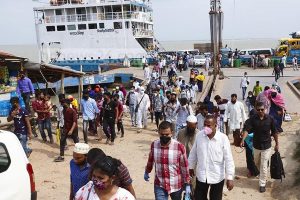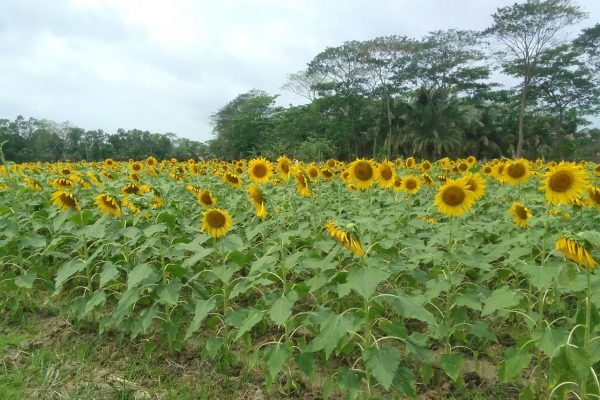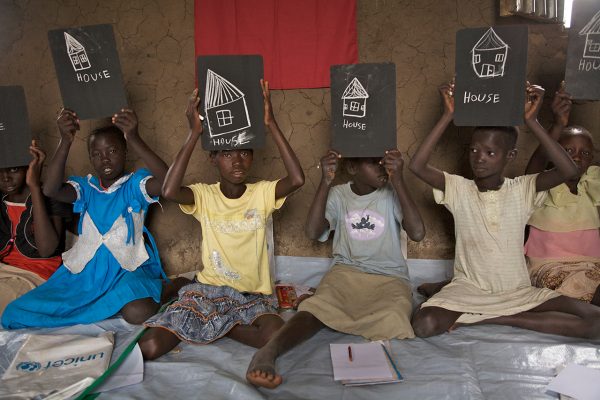COVID-19: Update from Asif Saleh (30 May 2020)
Reading Time: 4 minutes
The lockdown is ending in Bangladesh. The next two weeks offer a window of opportunity to manage the outbreak, with the right prioritisation. Read the latest about COVID-19 in Bangladesh.
Dear colleagues, partners and friends,
A unique dichotomy is in place as we speak.
The middle-class urbanites, on one hand, are hunkering down and getting ready with preparation for at-home care and what is to come during the next few weeks. On the other hand, people from low-income groups who are worried about their livelihoods are returning to Dhaka, leaving their futures to their fate.

Image courtesy: www.bdnews24.com
The lockdown – which bought us some time to plan for things – is ending, and will be replaced by limited scale general activities with certain restrictions from 31 May – 15 June.
My worry is that we left a lot of things far too late for the healthcare system to be sufficiently prepared for the catastrophe that is about to hit us. I would like to think we still have two weeks to get some of those things on track.
The death of Maria Ahmed, a senior manager of BRAC’s urban development programme, has been hard to accept. She was a COVID-19 patient in the intensive care unit of a private hospital in Dhaka city, with a lung infection that was gradually improving. Her family and friends alleged her oxygen flow ran out and she succumbed to death at 3am yesterday.

As one of her friends stated in a Facebook post: “To the authorities she is just a number, but to her family she is the world”. To her colleagues, she meant the world as well, and we are having a tough time accepting this premature death.
The fragmentation and lack of accountability in our healthcare sector is getting exposed on a manifold scale during this crisis and this is just one such example. Dr Adbullah, the Prime Minister’s personal physician, has lamented in the media that the district hospitals are full and upazila infrastructure can barely withstand the onslaught of patients.
In my last letter, I talked about the testing conundrum. I urged that we must stop differentiating between COVID-19 and non-COVID-19 hospitals and create separate facilities for both within all hospitals. In a welcome move, the Ministry of Health has now instructed all hospitals with 50 or more beds, clinics and diagnostic centres to provide treatment to both COVID and non-COVID patients in separate units.
In a Facebook live that I held last week, Dr Tareq Alam from Bangladesh Medical College mentioned while the ministry’s circular cleared the path for all private hospitals to start treating COVID-19 patients, it will take weeks for all the hospitals to be ready. There are also serious concerns about the quality of infrastructure of isolation units in the private hospitals. On 27 May, a fire broke out at a COVID-19 treatment unit in United Hospital, a private hospital in the capital, and claimed the lives of five COVID-19 patients. The isolation unit was deemed very risky by the fire service, with a tin roof and partitions made of flammable material. Nine out of the 11 fire extinguishers provided in the isolation room had expired.
What do we need to do now?
The two weeks of restricted activities still offer a window of opportunity to manage the outbreak, but prioritisation needs to happen.
- Wash hands, wear masks and raise the awareness of the citizens:
The Dhaka Tribune’s webinar titled ‘The last window to tame the beast’ with Dr Maliha Mannan Ahmed, Barrister Rasha Imam, Dr Ashikur Rahman and Zafar Sobhan, discussed this matter extensively. Since the discussion, wearing a mask outside has been made mandatory. This is a good step, however it may prove to be ineffective without intense mass communication on effective mask-wearing habits. BRAC intends to start mass communication about this next week. This needs to be coupled with intense hand-washing campaigns and activities.
- Enforce new rules for physical distancing:
The big question is how much of the new health guidelines for public transportation and workplaces will be implemented. The government needs to keep a firm eye on the enforcement of its policies, while every sector needs to take the responsibility of ensuring distancing takes place.
- Open up rapid testing kits and create a coherent testing strategy with experts and a high-powered implementation panel:
While this may slow down and reduce the spread, there is a lot of work to be done on response coordination. Central to all that is a good testing strategy. Testing needs to be increased, made available, prioritised in terms of who needs it and who does not, and the testing mechanism needs to be diversified as soon as possible. This will also be fundamental to having an effective zoning approach for partial lockdowns in red zones. Bangladesh already has good examples of making this happen.
- Decentralise response with other stakeholders beyond the administration:
Now that we are gearing up for the next phase, the entire response needs to be decentralised, through engagement of stakeholders including NGOs, private sector, law enforcement agencies, student groups and volunteer organisations.
BRAC is preparing how such a community-driven approach would look like and completed a rapid pilot recently. We will be working with development partners and the government to see how this can be scaled up across the country starting with the 19 districts which are currently the worst-affected.
- Preparation of makeshift facilities:
Makeshift oxygen tents and alternative treatment facilities need to be introduced in hot zones, in anticipation of healthcare facilities being overrun in the coming days.
New survey on returnee migrant workers by BRAC
87% of returnee migrant workers (participants of BRAC’s migration programme) have no income opportunities amid the shutdowns, according to a recent survey. Nearly 500,000 people have returned from abroad between mid-February and mid-March. With economies weakening and jobs decreasing, Bangladesh needs to put a great amount of thought about the rehabilitation of the returnee migrants, ensuring adequate training and creation of job opportunities.
Amid the doom and gloom, let me share this beautiful story of humanity – of how a sick migrant worker from Bangladesh in Singapore found his angel.
A huge thank you to those who continued to provide essential services over Eid, from healthcare workers and police officers to journalists and staff in delivery services. Bangladesh is eternally grateful to you.
I also extend a particular thank you to all of the individuals and organisations supporting BRAC to enable us to continue our work. We are facing unprecedented challenges, but we will pull through this together, as Bangladesh has done so many times before.
We are not publishing the full report today due to Eid holidays.
Asif Saleh is Executive Director, BRAC Bangladesh.





